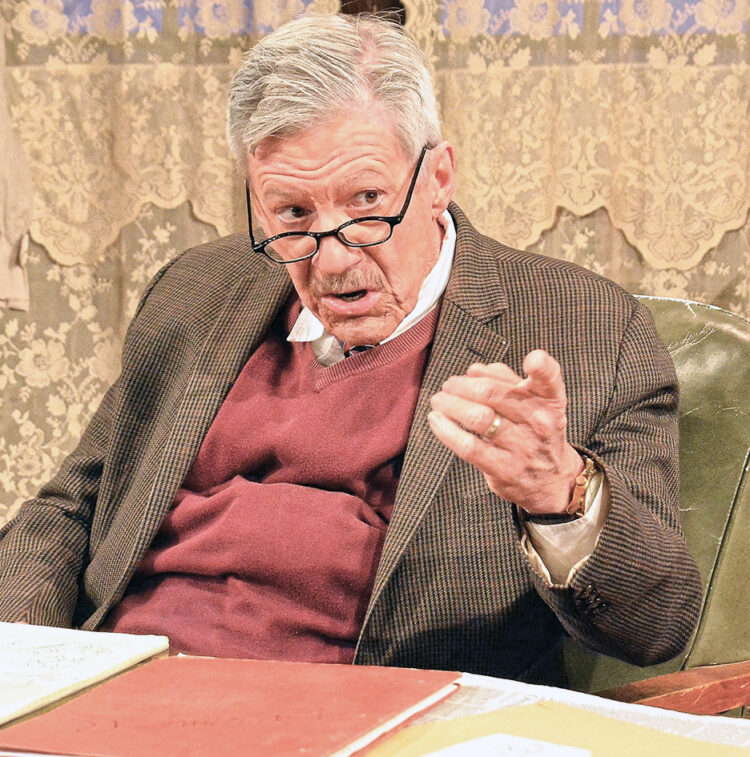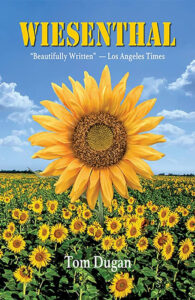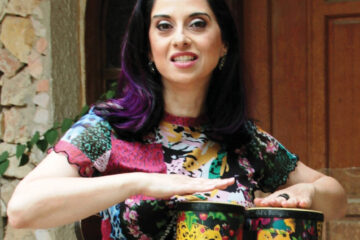Playwright/actor brings Wiesenthal back to life

By Ari L. Noonan, Jewish Journal
Simon Wiesenthal — history’s most successful pursuer of Nazis, who brought almost 1,100 criminals to justice — lives again in playwright and actor Tom Dugan’s talented hands. Dugan has been performing his one-person play, Wiesenthal, around the world since 2009. And in 2021, he published a book based on the play. He’ll bring scenes from Wiesenthal the play and a talk about the book to Dayton on March 17 as part of the JCC’s Cultural Arts and Book Series.
To quote the book: “Wiesenthal was a Polish Jewish Holocaust survivor, Nazi hunter and writer. After World War II, he dedicated his life to the search for and legal prosecution of Nazi criminals, and to the promotion of Holocaust memory and education.”
Wiesenthal died at the age of 96 in 2005; Dugan polishes the Nazi hunter’s unprecedented accomplishments to a brilliant gloss.
How a nice Irish Catholic boy from New Jersey came to bring a broad, intense focus to a modern-day Jewish hero is also fascinating.
“Writing about Wiesenthal resonated with me,” Dugan said, “because of the important lessons my father taught me and also because my wife, Amy, and our two boys, Eli and Miles, are Jewish.
“My father’s generation did a great job of passing down to my generation the valuable lessons of the Holocaust. It was incumbent on me to pass those lessons to later generations. Writing and performing Wiesenthal is my way of doing that.”
Dugan’s father, a World War II veteran, “was a liberator,” the author said. “I have always had the idea of honoring his participation in the war. When Wiesenthal passed away in 2005, I immediately started asking people, ‘Would you see a play about Simon Wiesenthal?’
The answer was ‘yes’ in every case. So I figured I had something.”
Dugan writes that “tolerance plays a big part in my life. Teaching the value of tolerance was, I believe, Simon Wiesenthal’s greatest achievement.”
Wiesenthal the book is a photo-laden volume enhanced by a study guide and questions that can serve as educational tools for teachers and students.
Not that this happened overnight. Two years of research and one year of writing built the script. The book was published by Deborah Herman of Bashert Books, Stockbridge, Mass.
Herman, Dugan’s collaborator, said she fell in love with Wiesenthal the play shortly after it debuted off-Broadway in November 2014.
“After the play, I told Tom ‘If you ever want to do a book, call me,’” she said.
“Hopped right on it,” Dugan cracked. “Called her five years later,” in 2019, not long before Covid-19 exploded. Throughout the pandemic, Herman and Dugan spent their southern California-to-Massachusetts days on Zoom. “I am so impressed by his attention to detail,” Herman said.
“His entire career was about the future, not the past,” Dugan added, “how the lessons we have learned from the Holocaust must be applied today. The most important message is that people cannot understand the evil that the Nazis represented until they can recognize the potential for evil in themselves. That is tough for people to swallow.”
Dugan said teaching was a crucial Wiesenthal contribution to society. “Nazi hunting was heroic and necessary,” he acknowledged. “But as a teacher of the psychology of man, and of sociology, that was Wiesenthal’s most valuable legacy. He broke down how these things could have happened in an understandable, human way that the masses can wrap their head around in present times.”
Wiesenthal talked about “the human savage,” Dugan said. “When Wiesenthal said we must recognize the human savage in ourselves, that’s a tough pill to swallow. People get very offended. ‘There is nothing in me that would be in a Nazi,’ they say. ‘Nazis are monsters.’ My answer is, ‘Monsters are make-believe. Nazis were real. They were human beings.’ People don’t like to hear that. The danger is that if you make the Nazis like vampires, there is no danger there. The savage inside of us is very real. Unless you look at it and understand it, you might be moved by it.”
The JCC Cultural Arts & Book Series in partnership with Dayton Metro Library presents Tom Dugan, 2:30 p.m., Sunday, March 17 at the Main Library, 215 E. 3rd St., Dayton. The program is free. Register here.
To read the complete March 2024 Dayton Jewish Observer, click here.






